QUALITY GUIDELINES
Using the Kansas Afterschool Program Quality Guidelines
The purpose of the self-assessment tool is to provide a pathway to reflect upon current programs, define areas for improvement, and provide an opportunity to prioritize and plan for quality improvement.
The 2021 update brings up to date guidelines and a version of the self-assessment that is further aligned with the Core Competencies for Early Childhood and Youth Development Professionals (Kansas and Missouri).
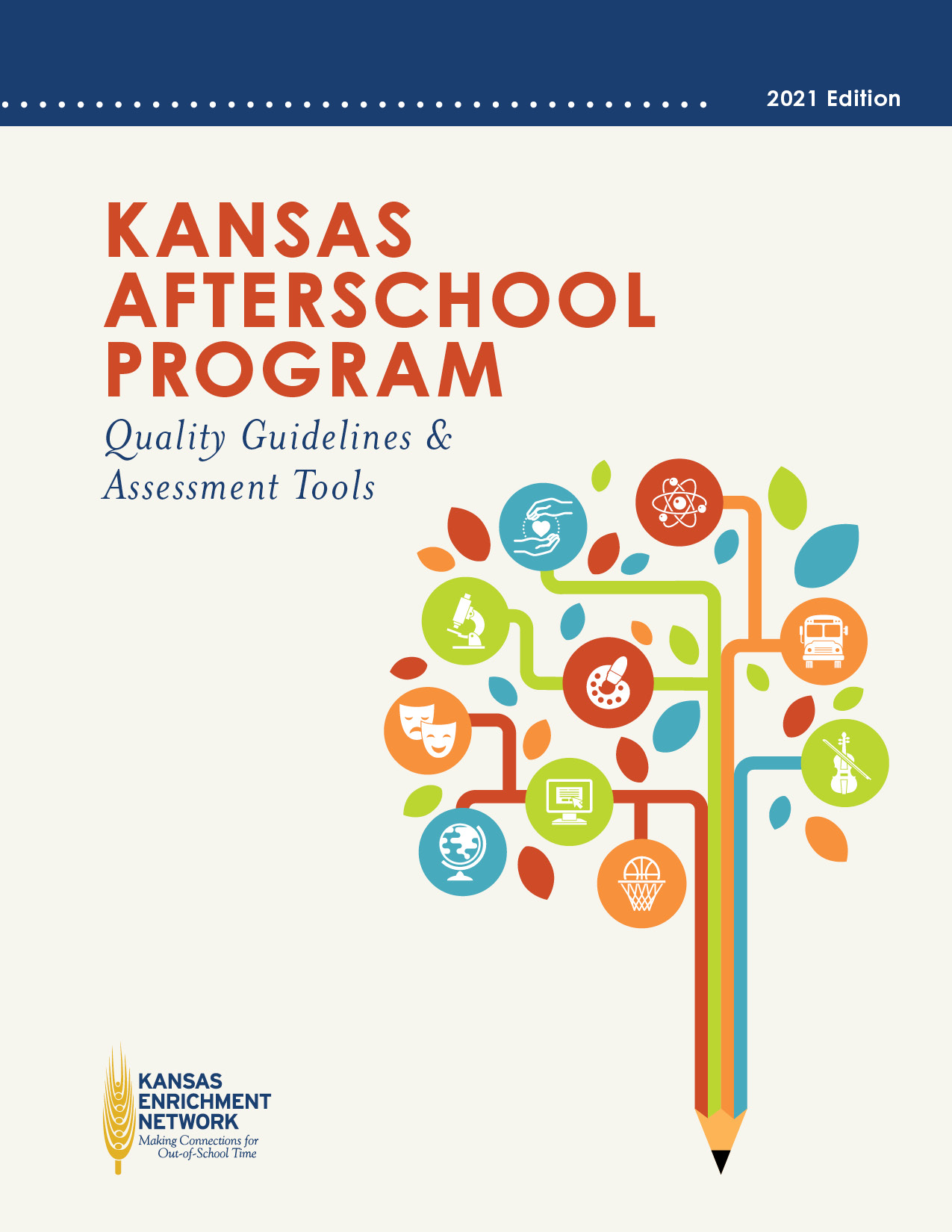
Kansas Afterschool Program Quality Guidelines and Assessment Tools
Download the complete 2021 guidelines and assessment tools here.
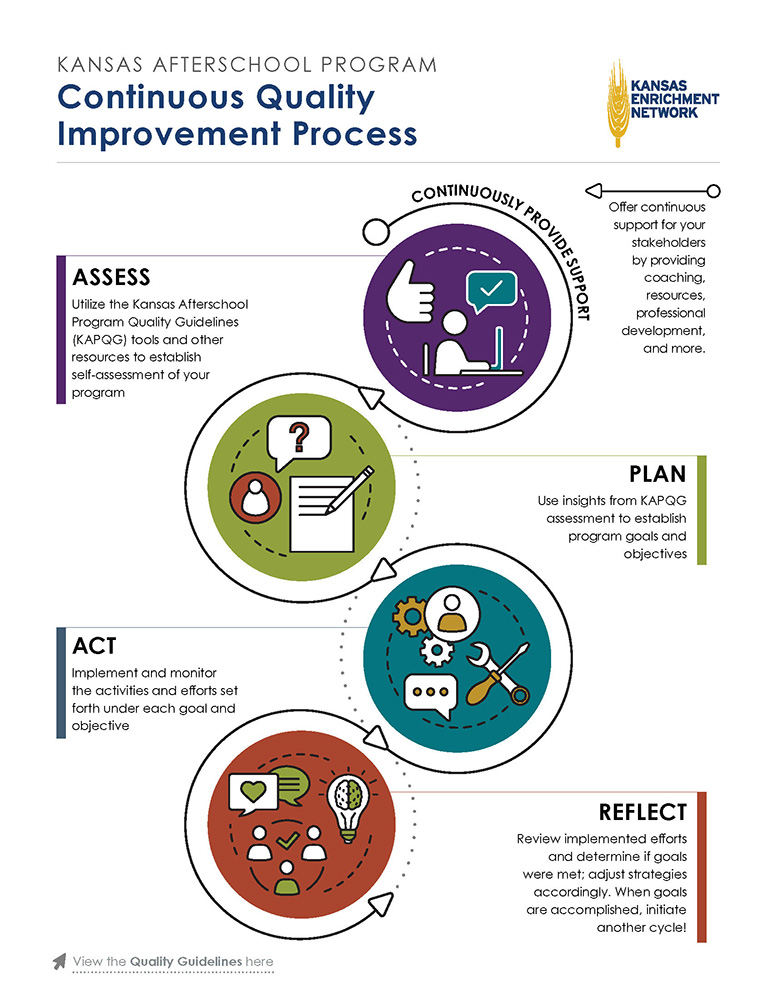
KEN Quality Improvement Process
This document gives an overview of the process of continuous quality improvement: to assess, plan, act, and reflect.
Take the Assesments
Each of the following buttons leads to an online assessment for one of the five categories in the Kansas Afterschool Program guidelines.
Printable (PDF) assessments can also be used and can be found in the “Access the Resources” section below.
Make a Plan for Improvement
This tool will allow programs to establish goals and planning based on the Kansas Afterschool Program Quality Guidelines Self-Assessment. In the tool, highlight the guideline your program has chosen to focus on, describe how you have assessed your program in this area, and outline your goal and the objectives you will work to meet.
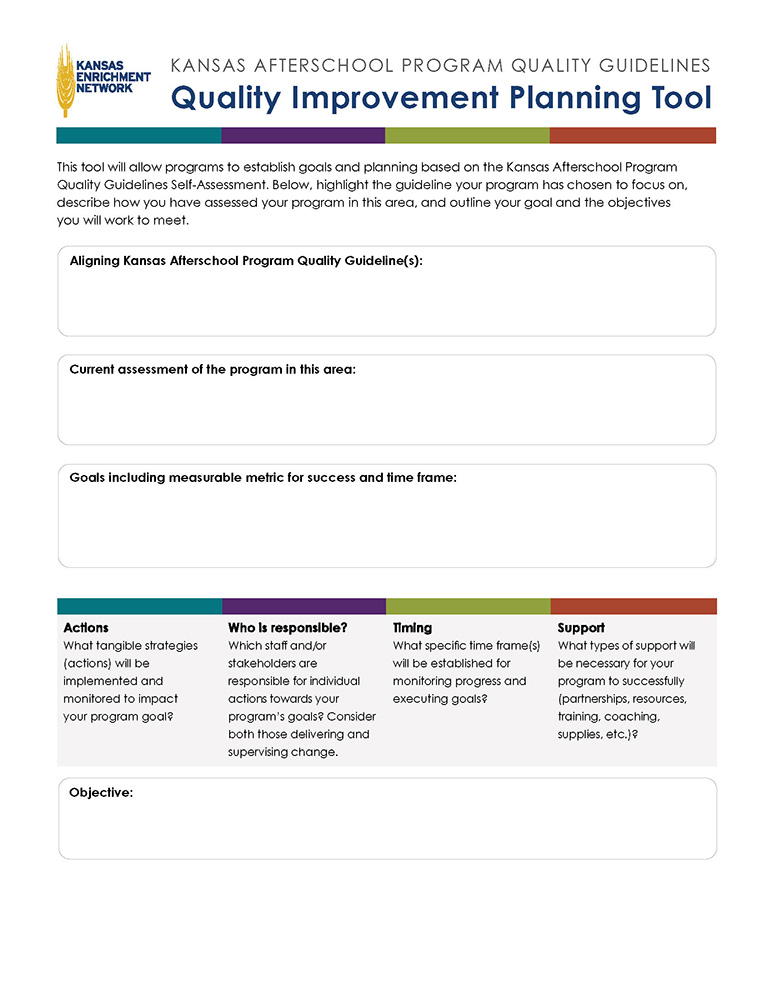
Download the planing tool
Access the Resources
Resources corresponding with each category of the Kansas Afterschool Quailty Program Guidelines are linked below.
Operations Resources
Printable Guideline & Assessment (PDF)
Staffing Out-of-School Time Programs in the 21st Century
A Practitioner’s Guide: Building and Managing Quality Afterschool Programs
Kansas Department of Health and Environment (licensing)
Union County Public Schools (manual/policy examples)
Keys to Quality Afterschool: Environments, Relationships and Experiences
Programming Resources
Printable Guidelines & Assessments (PDF)
Child & Adult Care Food Program
USDA Food and Nutrition Service
Taking a Deeper Dive into Afterschool: Positive Outcomes and Promising Practices
Afterschool Curriculum Planning Resource Toolkit
Concept to Classroom: Key principles of developing an afterschool curriculum
Youth Impact: A LEARNS Resource
Keys to Quality Afterschool: Environments, Relationships and Experiences
CAN: Promising Practices in High School After School Programs
Relationships Resources
Printable Guidelines & Assessment (PDF)
Building Supportive Relationships in Afterschool
NAA: 4 Easy Strategies to Build Supportive Afterschool Relationships (Webinar)
NAA: 10 Tips Building Relationships with Youth
Tips for Building Relationships with Youth
Afterschool Network: Communicates and Develops Positive Relationships with Youth
Teaching Tolerance: Authentic Relationships
You for Youth (Y4Y) Family Engagement Implementation
Building Youth – Adult Relationships (Students at the Center)
PTA National Standards for Family-School Partnerships
PTA National Standards for Family-School Partnerships: An Implementation Guide
Kansas Education Systems Accreditation – Framework: The Five R’s
Family Engagement Resources
Professional Development Resources
Kansas Department of Health and Environment (licensing)
NJ STEM Pathways Network: Cultural Competencies
National Center for Quality Afterschool: Afterschool Training Tool
Statewide Afterschool Network Professional Development
New York State Afterschool Network: Professional Development, Resources, and Considerations
Teaching Tolerance: Professional Development
Additional Documents
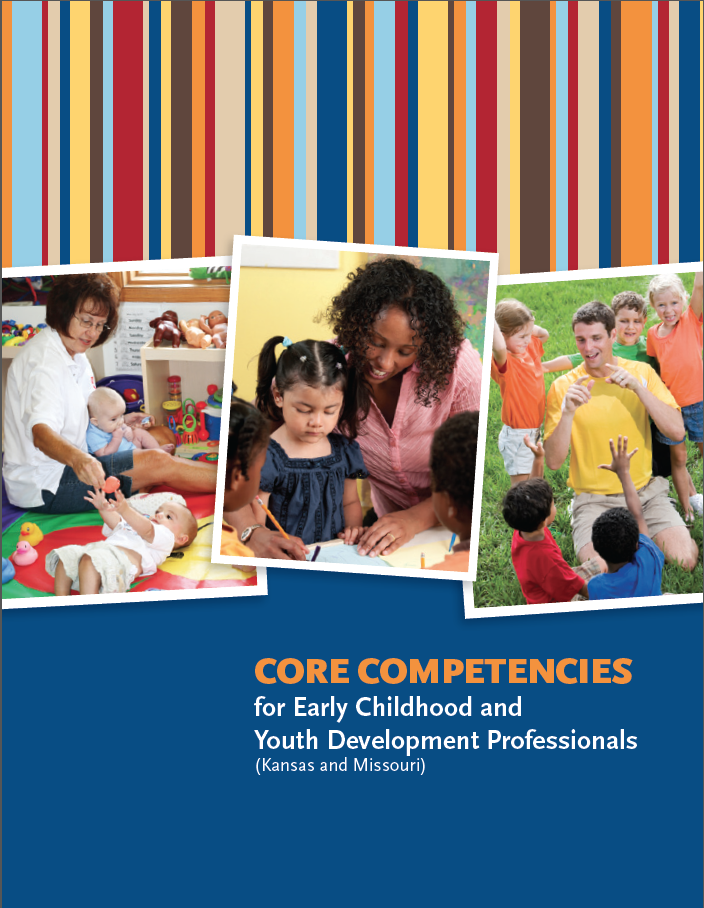
Core Competencies for Early Childhood and Youth Development Professionals
Core competencies are what you need to know to provide quality early childhood and youth development activities and interactions. The Core Competencies for Early Childhood and Youth Development Professionals (Kansas and Missouri) is a framework that defines the standards for early childhood and youth development professionals. They set the expectations for professionals who care for infants, toddlers, preschoolers, school-age children, and older youth.
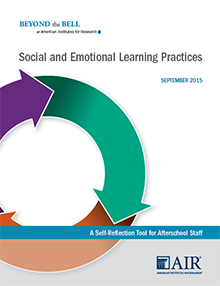
AIR Social and Emotional Learning Afterschool Toolkit
This self-reflection tool is designed to help afterschool program staff reflect upon their own social and emotional competencies and their ability to support young people’s Social and Emotional Learning through program practices.
